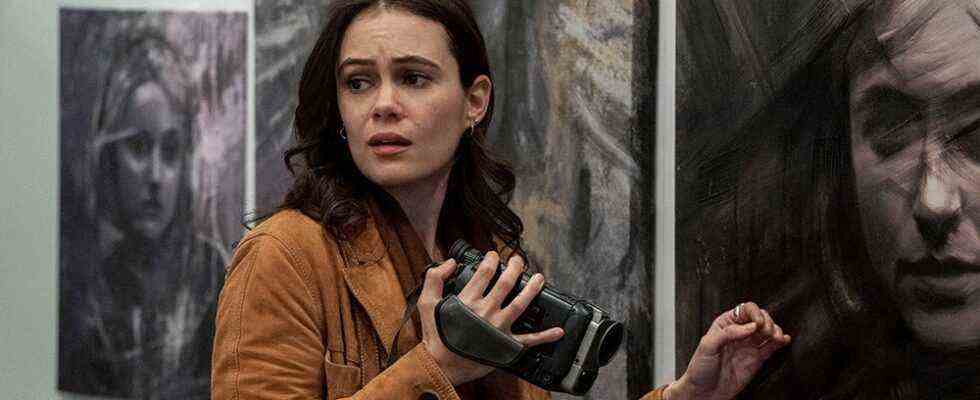The “secret whistleblowing”, as the social psychologist Pia Lamberty once called it, is currently very popular – with people who fantasize about the dark forces behind government and the media, but also for a long time with series producers. Anyone who has not been sucked into at least one title in the past twelve months that has been gleefully revolving around an ever-expanding puzzle at the heart of the plot for hours, throw the first remote control. The effectiveness of the enigmatic for serial storytelling is likely to explain the ongoing true crime trend.
The analysts at Netflix may have found the arcane formula behind this genre segment, which could loosely be described as “mystery”, shouted hurray and ran to the boss who decided: Very good, let’s make a series out of it now. Mystery unstretched, that’s gonna be a hit. “Archive 81” was born.
Every cannibalization is a brutal section
It would be wrong to say that the series feels like it comes from the kit for the genre, more like it is the kit itself – which makes it interesting in a weird way. It contains, to name just a few examples, a lonely house, surrounded by forest and a fence. Two abandoned chapels. An underground vault. Locked filing cabinets full of secret knowledge from an obscure research series. All on the same property, mind you, which isn’t even the main location. Dan, a film restorer, is supposed to rescue a number of burned video cassettes from 1994 on behalf of a mysterious company boss. It shows the research project of a doctoral student in social anthropology who wants to use her video camera to conduct interviews with the residents of a run-down building in Manhattan for an “oral history” project. She notices strange pentagrams in stone reliefs next to the door when the caretaker lets her in.
It’s about other worlds. About ghosts. The bad and the good. Nothing is what it seems “Archive 81”, you have to admit, is consistent in the uncompromising attitude with which the series cannibalizes the mystery formula. Just as every slaughter is a section, albeit a brutal one.
From the ventilation shaft of the apartment in the Manhattan building that Melody moves into for her project, eerie singing in a strange, certainly old language comes out. The sheer emblematic that manifests itself in it forms the narrative keynote of the series. A metronome is ticking – a dark memory of Dan’s childhood. Around every corner there are new puzzles, new inexplicable entanglements between the time levels. There is a constant whispering through the action, so to speak from the end, which promises to finally dissolve the all-pervading darkness – release from the shimmering and rustling.
The figures stick like the audience in front of screens and wait for redemption
This is an extremely successful strategy for serial storytelling. You stay on the ball through all the hours, not because of the characters in their development, but because you are infected and can’t stop looking, until the dissonances are liberated. “Archive 81” finds the picture of addicts who live on a forbidden floor of the building and feed on the mold on the walls. It is the deposits of darkness, of the inexplicable and inexplicable, that eat their way through the building and have become its supporting substance. All those involved in the action report a mysterious pull that tied them to the building. You are fascinated by old video tapes – media with a patina, that is, recorded time. Promises of other worlds, hidden messages whisper to them from it. Like the audience, they are addicts in front of screens.
When wandering through these dark corridors, questions arise. Was it so desperate for those in charge of Netflix that they were looking for a hit that they turned the mother of all mystery series, according to the much-helps-a-lot principle, to the point of emptying of meaning and self-reference? Does that mean, taken a step further, “Archive 81” is ingenious, a kind of “Videodrome” for the streaming age? Or are the self-references a lame excuse to let go of all inhibitions in the puzzle of the plot in order to keep the audience hooked?
Let’s put it this way: The truth is not in the middle, but somewhere behind. What is that supposed to mean? I don’t know, but it sounds like it deep, or?
Archives 81, eight episodes, on Netflix

